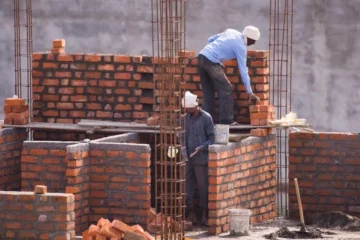
The real estate sector is headed for consolidation with the organised players expected to gain, driven by reforms such as Rera which is improving transparency and raising consumer activism on account of poor delivery by builders.
A research report by foreign brokerage CLSA says that India’s fragmented property sector is undergoing a transformation, as far-reaching reforms drive consolidation.
The listed real estate companies in $100-billion residential-housing market will gain as the Real Estate Regulatory Act (Rera) tightens compliance and provides a boost to transparency.
The brokerage says that as weaker players exit, quality players will benefit, doubling their market share to 20% by FY24. The big-listed developers include Godrej Properties, Sobha, Prestige Estates, Oberoi Realty, Indiabulls Real Estate and DLF.
Rera mandates putting cash inflow from customers into a managed account, and this is already beginning to cause serious working-capital issues for unorganised players. “Increased compliance costs and complexity, and greater levels of monitoring will drive non-serious players out of the market,” the report said.
There has also been increased consumer activism in the backdrop of non-delivery of homes and punitive action against builders, such as Unitech, JP Infra and Amrapali, in cases .
Rera is being seen as part of the anti-corruption campaign launched by the Modi government since 2014 that is cleaning up the property sector. The other big moves include demonetisation, the Goods and Services Tax (GST) and the Benami Property Act (2016).
In the run-up to the general elections, the GST Council had recently lowered the GST on real estate by 8% to give a boost to sales and to clear up the rising inventory in the system.
The GST has been reduced from 8% to 1% on under-construction affordable-housing projects and from 12% to 5% for other under-construction housing projects.
The real estate is also currently facing the heat from the spillover from the liquidity crunch in the non-banking financial companies sector, which is expected to lead to lower disbursements.
Foreign brokerage Credit Suisse said in a note that real estate sector’s non-performing assets (NPAs) are likely to rise in the fourth quarter (Q4) as lack of funding from NBFCs adds to the pressure of weak property sales.
The report said given the liquidity stress faced by NBFCs, disbursements fell 18% year-on-year in Q3, and Q4 is likely to see a further decline. “Given Q4 accounts for around 35% of annual disbursements, cash flow impact on developers should be large,” the report said.
Developers are saddled with inventory of more than 40 months of sales in most markets and are over-leveraged. Cash flow constraints and incremental credit from NBFCs have started pushing up NPA levels.
[“source=financialexpress”]



